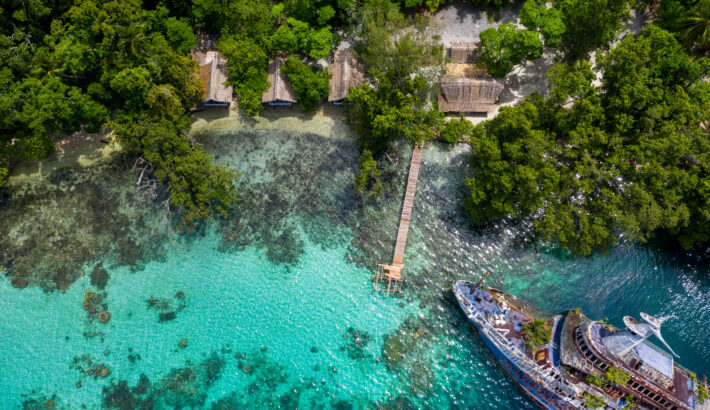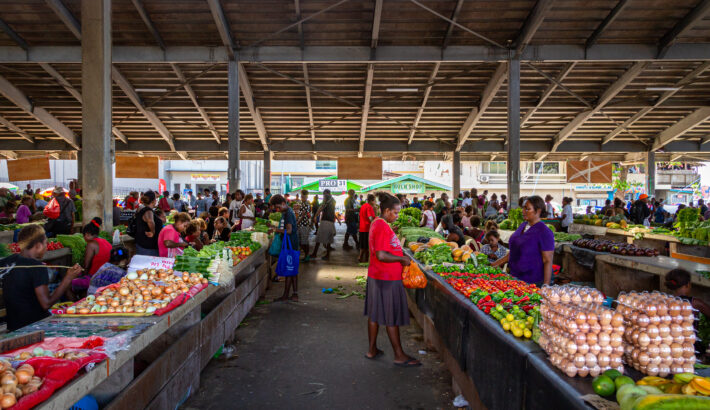Safety First: Navigating the Solomon Islands with Local Insights
Download the PDF Guide: Safety First Navigating the Solomon Islands with Local Insights (GS Agencies PDF12)
Traveling through the Solomon Islands presents an opportunity to explore unparalleled natural beauty and rich cultural history. However, being aware of local safety concerns and environmental precautions can ensure a secure and enjoyable visit. Here’s a closer look at specific local hazards and safety advice:
Environmental Awareness
- Riptides and Currents: Many beaches in the Solomon Islands are pristine and inviting but beware of strong riptides and currents. Always seek local advice before swimming.
- Tropical Climate: The humid and rainy conditions can lead to dehydration and heat-related illnesses. Drink plenty of water and protect yourself from the sun.
Health Considerations
- Malaria and Dengue Fever: These mosquito-borne diseases are prevalent. Use DEET-based insect repellent, sleep under mosquito nets, and wear long-sleeved clothing.
- Water Safety: Stick to bottled or boiled water. Avoid raw vegetables and fruits that you haven’t peeled yourself to prevent waterborne illnesses.
Cultural Sensitivity and Local Laws
- Respect Local Customs: The Solomon Islands have diverse cultures and traditions. Dress modestly, ask permission before taking photos of people, and be mindful of local customs to avoid inadvertently offending.
- Beware of Local Brews: Homemade alcohol, known locally as “kwaso,” is potent and consumption should be approached with caution.
Wildlife and Natural Hazards
- Marine Hazards: While diving and snorkelling are major attractions, be cautious of jellyfish, coral cuts, and potentially dangerous marine life. Always dive with a reputable company.
- Volcanic Activity: For those exploring volcanic areas, stay informed about activity levels and follow safety guidelines issued by local authorities.
Security Measures
- Stay Informed of Local Conditions: Petty crime can occur, particularly in urban areas. Keep valuables secure and stay informed about the areas you plan to visit.
- Emergency Services: Familiarise yourself with local emergency services and keep a list of emergency contacts, including local police and medical facilities.
Navigating the Islands
- Inter-Island Travel: When traveling by boat between islands, verify the vessel’s safety equipment and check weather conditions. Sea travel can be unpredictable.
- Road Safety: Road conditions and driving standards differ significantly from those in Western countries. Use reputable taxi services where possible.
By adhering to these guidelines and maintaining a respectful and cautious approach, travellers can safely enjoy the magnificent experiences the Solomon Islands have to offer. Above all, engaging with local communities and environments responsibly ensures both your safety and the preservation of this unique destination.
Dining and Cuisine: Savouring the Flavours of the Solomon Islands
Download the PDF Guide: Dining and Cuisine Savouring the Flavours of the Solomon Islands (GS Agencies PDF11)
The Solomon Islands’ cuisine is a tantalising fusion of fresh, local ingredients, drawing influences from Melanesian, Polynesian, and European culinary traditions. This guide aims to explore the rich flavours and dining experiences the islands offer, from traditional dishes to contemporary culinary delights.
Local Ingredients
- Seafood: With the ocean at its doorstep, the Solomon Islands boast an abundance of seafood. Tuna, snapper, and lobster are just a few of the fresh catches commonly found in local dishes.
- Root Vegetables: Taro, sweet potato, and cassava form the staple diet, often served alongside coconut milk-based curries or stews.
- Fruits: The tropical climate yields a variety of fruits such as pineapples, papayas, and bananas, which are often used in both sweet and savoury dishes.
Must-Try Traditional Dishes
- Poi: A traditional Melanesian dish made from fermented taro or cassava root, pounded into a paste and often paired with coconut cream.
- Curry and Rice: Influenced by early settlers, curry dishes have become a staple, featuring local seafood or chicken, flavoured with coconut and served with rice.
- Lap Lap: A unique dish where grated yam or cassava is mixed with coconut milk and sometimes chicken or fish, then baked in banana leaves.
Street Food and Local Markets
Exploring the local markets in Honiara or other islands reveals a bustling atmosphere where visitors can sample fresh fruits, vegetables, and street-food snacks. Look out for grilled fish, barbecued meats, and local pastries.
Dining Experience
- The Solomon Islands may not have an extensive range of international restaurants, but there are several gems serving delicious local and international cuisine. From beachside grills to more formal dining options in larger hotels, the focus is on fresh, locally sourced ingredients.
- For an authentic experience, try a meal at a local “kai bar” for simple, traditional dishes that are both delicious and affordable.
Eco-conscious Eating
- Many establishments and local communities are embracing sustainable practices, including farm-to-table dining experiences that support local agriculture and reduce the carbon footprint associated with food transport.
Beverages
- Beyond dining, the Solomon Islands offer unique beverage options, including fresh coconut water, local beer brands, and the traditional ‘kwaso’, a homebrewed alcohol. However, it’s advised to consume kwaso with caution due to its potent strength and variability.
Dining in the Solomon Islands is an adventure in itself, offering a taste of the islands’ cultural diversity and natural bounty. Whether you’re enjoying a simple meal at a local eatery or indulging in a seafood feast by the ocean, the Solomon Islands’ culinary scene is sure to leave a lasting impression. Remember, the key to truly experiencing the local cuisine is an open mind and a willingness to try new flavours and dishes.


